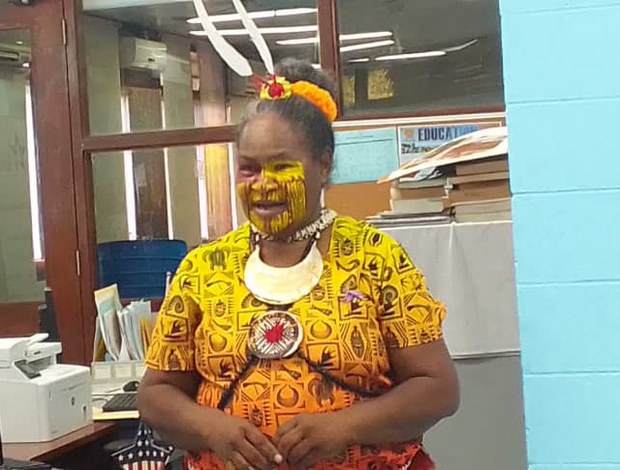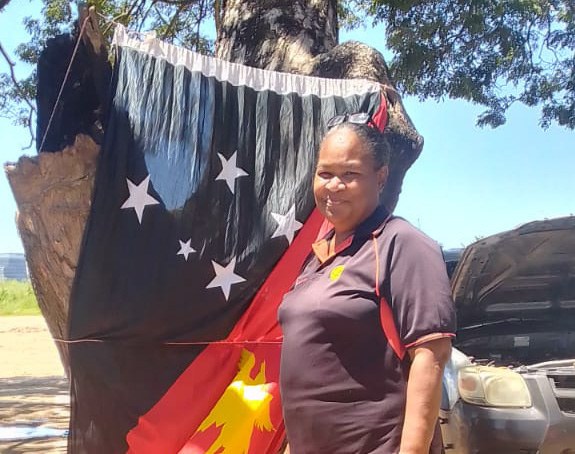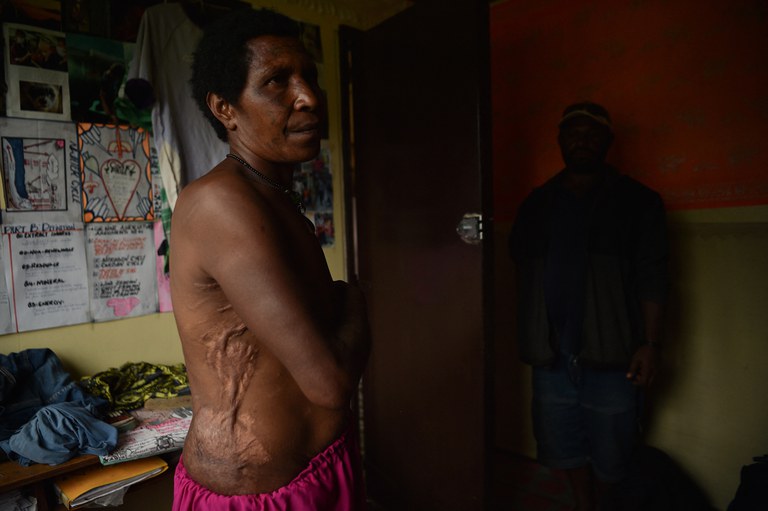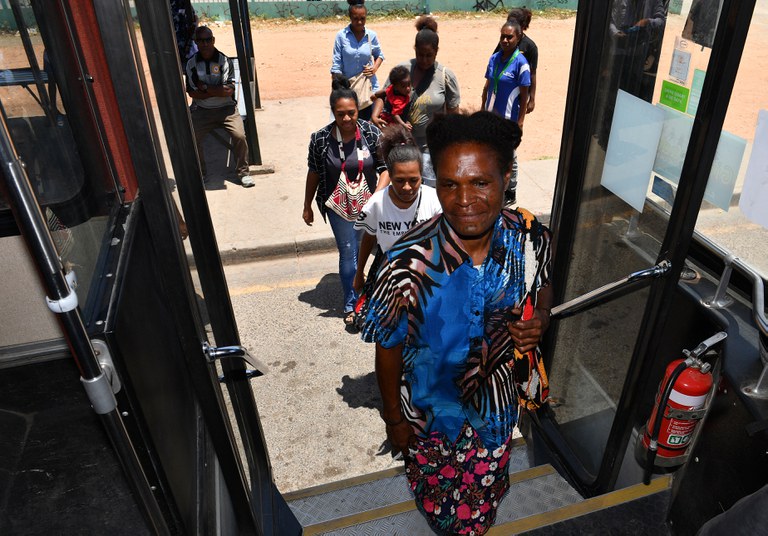Papua New Guinea human rights defender recognized by US fellowship
2023.04.04
Port Moresby, Papua New Guinea
 Linda Rau Tule, president of the Human Rights Defenders Association PNG, speaks at a National Women’s Day event in Port Moresby, Papua New Guinea, March 24, 2023.
Linda Rau Tule, president of the Human Rights Defenders Association PNG, speaks at a National Women’s Day event in Port Moresby, Papua New Guinea, March 24, 2023.
The U.S. government is recognizing a Papua New Guinea woman for her work in defending human rights and mediating conflicts in the volatile Pacific island country.
Linda Rau Tule, a village court magistrate who is also president of the Human Rights Defenders Association PNG, has been named a recipient of the Distinguished Humphrey Fellowship, awarded internationally to between 10 and 15 people each year.
“We are a small group of women and men who go out every day to help conflict victims,” she told BenarNews. “This is all voluntary work. We do not get paid for this.”
“I am so excited that the most powerful country in the world – the United States – has recognized me. Australia did not recognize me. The United States of America did,” Tule said. She received word of the fellowship in February and made it public at a National Women’s Day celebration on March 24.

Under the fellowship, Tule will visit the United States from late April to mid-May to receive her award and participate in an intensive course on human rights and social justice at the Duke Center for International Development, at Duke University in North Carolina. The Humphrey Fellowship Program is a Fulbright exchange funded by the U.S. State Department.
The United States, which is vying against China for influence with Pacific island countries, last year included Papua New Guinea in the small group of nations for which it has a 10-year strategy for preventing conflict and promoting stability.
The other states included in the measure – which has U.S. legislative backing in the 2019 Global Fragility Act – are Togo, Ghana, Benin, Guinea and Côte d’Ivoire, Libya and Haiti.
Stability for Papua New Guinea, which gained its independence from Australia in 1975, has remained elusive as the country of nine million people grapples with tribal conflicts and challenges such as violence against women, corruption and a lack of roads and basic healthcare in many regions.
As a village magistrate for an area in Papua New Guinea’s capital and a volunteer rights defender, Tule is involved almost every day in responding to the consequences of sexual violence, marital affairs, sorcery accusations and alcohol abuse.

On Mondays, Tule and her group of human rights defenders – mostly women – hoist Papua New Guinea’s flag against a rain-tree trunk by a market that’s a kilometer from the country’s parliament and supreme court, and hold their often tense mediation sessions.
The work is all about personal commitment since the group is not on any government or other payroll, she said. They receive some funding from U.N. Women for administration and travel costs and training programs.
For all her work, Tule said she believes in a grassroots approach.
“We hold very ordinary meetings and carry out our mission. What I believe in is a practical bottom-up approach in solving all issues,” she said.
‘We do this with our hearts’
One of her success stories, she said, is getting her fellow volunteers properly trained in handling conflict and disputes. Twenty men and women who Tule selected will be graduating with leadership certificates from the Pacific Institute of Leadership and Governance on April 14.
Tom Oaveta, who took part in the training, said being a human rights defender is taxing because of the high level of violence in Papua New Guinea, particularly against women and girls.
“It’s a challenging job. My wife tells me it’s a waste of time. We are not [paid] but we do this from our hearts,” he said.
Tule, a mother of four, said the Human Rights Defenders Association PNG, an NGO which she helped to revive, now has about 100 volunteers around the country.
“I must do my best as a village court magistrate to make a person believe they have the right to justice and to practice equity in trying to strike a balance where there is injustice. We must accept people just as they are without condition or expectation,” she said.
“We are all human beings. We need to work together to achieve the best for our country.”

Some Pacific affairs analysts, however, have said there is skepticism within Papua New Guinea about how effective the U.S. conflict prevention efforts will be.
Lauren Sooy, an advisor on the strategy at Washington’s embassy in Port Moresby, said the United States aims to work with local leaders such as Tule to learn and adapt its approach.
“Linda humbles me,” said Caroline Nyamayemombe, the deputy country representative for U.N. Women in Papua New Guinea.
“She and her group have taken risks to bring this nation forward. They are saving lives at the community level,” she said.







